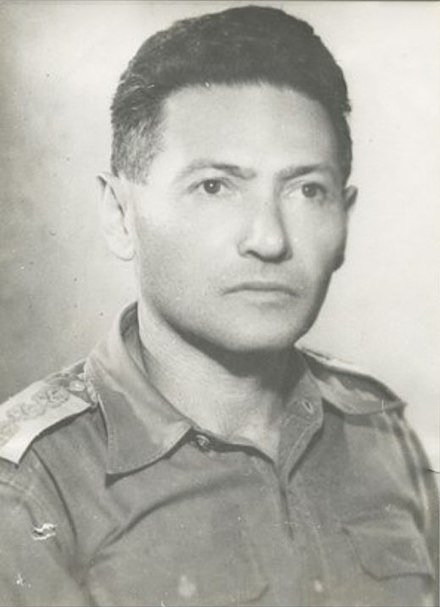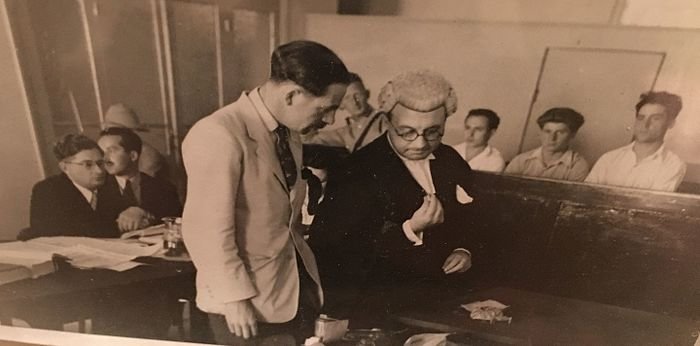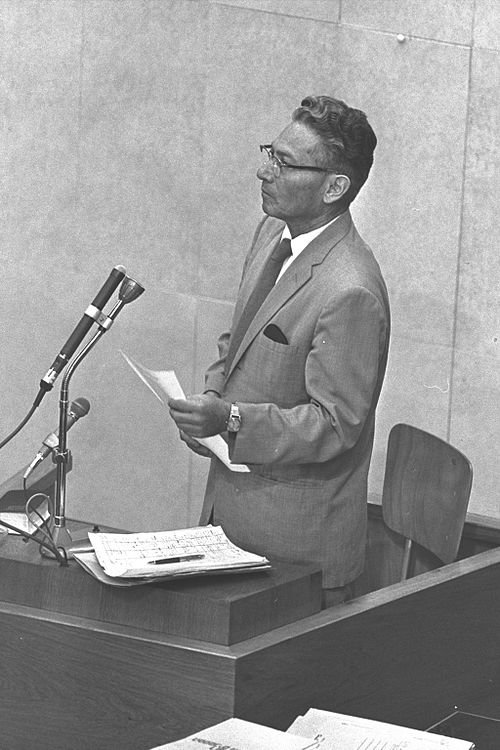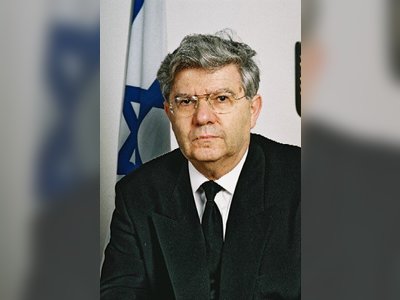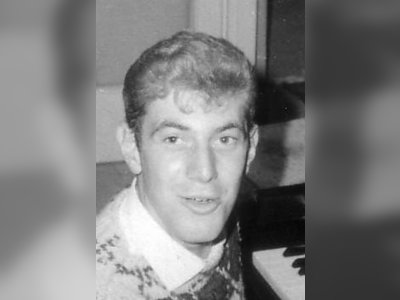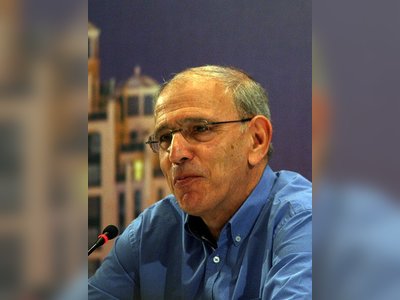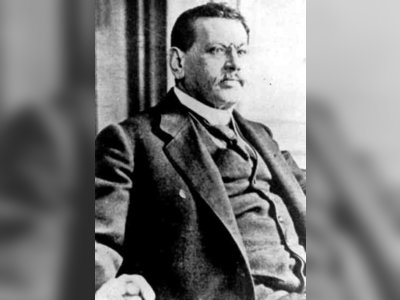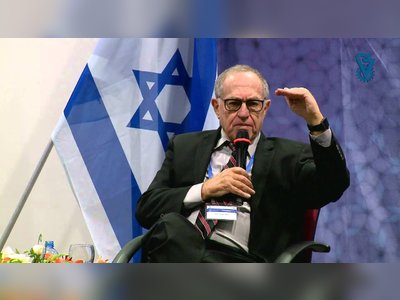Aaron Hatzor-Yishi: A Life of Legal Prowess and Humanitarian Dedication
In the annals of Israeli history, the name Aaron Hatzor-Yishi stands as a testament to a life dedicated to the legal profession, military justice, and the welfare of Holocaust survivors. Born on January 1, 1905, in the Russian Empire (within contemporary Ukraine), his journey would lead him to become a founding figure in the Israeli military legal system and a prominent legal scholar.
Hatzor-Yishi's legacy is deeply intertwined with his tireless efforts to uphold the rights of Holocaust survivors and his instrumental role in the formation of the Israeli Defense Forces' (IDF) legal framework.
Early Years and Education
Hatzor-Yishi immigrated to the Land of Israel at the age of eight, accompanied by his twin sister Miriam and his younger brother Reuben. His parents would follow later, along with two remaining sisters. During the years 1914 to 1917, amid the tumultuous backdrop of World War I, his family settled in Hadera, where his parents acquired a farm.
Throughout the war, he contributed to their livelihood by working in agriculture. After the war, he resumed his studies in Tel Aviv, attending the Herzliya Gymnasium, where he eventually became the head of the student council. Subsequently, he assumed leadership roles in high school student councils across Tel Aviv and authored the Students' Charter for Herzliya Gymnasium.
National Activism
Hatzor-Yishi was one of the founders of the Hebrew Language Guard, later becoming its leader. While working in Hadera, he established a branch of the Hebrew Language Guard in Haifa, alongside a Hebrew-speaking theater group.
He was among the initiators of the organization dedicated to promoting local produce and actively engaged youth and youth organizations in various Zionist and national endeavors.
In 1927, he enrolled in the first course for "Hagana" commanders. That same year, he gifted his painting depicting the Kishinev pogrom to his companion (and future wife), with the dedication: "To my dearest Rachel, from your devoted companion who swore to dry your tears with you."
Hatzor-Yishi regularly lectured on weekends to scout groups and youth organizations in Tel Aviv and the surrounding villages, focusing on topics related to Zionism, the Hebrew language, national heritage, and the Mandate Commission.
Once he obtained his legal license, he tirelessly advocated for conducting legal proceedings in Hebrew within the Mandate courts.
Legal Career
In 1920, while still a student at the Herzliya Gymnasium, Hatzor-Yishi assisted in the evacuation of Jewish families from the Arab neighborhoods of Ajami and Neve Shalom, protecting them from Arab violence. Due to his fluency in Arabic, he gathered eyewitness testimonies. Following an investigation led by a British-appointed Jewish lawyer, who came specially from England, Hatzor-Yishi redirected his life's trajectory from agriculture to the field of law.
In 1926, he began studying law at the Mandatory School of Law in Jerusalem. From 1927 to 1929, he worked as an intern at the law firm of Pervstein - Ben Meir. There, he organized fellow interns to improve their working conditions. In 1930, he received his license to practice law.
His first act as a lawyer was the publication of a comprehensive legal guide outlining citizens' rights, aiming to save the public the expense of consulting a lawyer.
From 1930 to 1935, he resided in Haifa, where his Arabic language skills facilitated his interactions with the Druze and Arab populations of Mandatory Palestine. His strong ties with the Arab and Druze communities proved valuable in his later endeavors on behalf of the Jewish paramilitary organization, "Hagana."
Hatzor-Yishi played a pivotal role in countless legal cases related to illegal immigration, weapons possession, land seizures, agricultural activities, murder trials, and more. In nearly every case, he successfully defended the accused from the British Mandate's prosecutors, preventing the deportation of undocumented immigrants and the imprisonment of undocumented weapon owners.
World War II Service
In 1941, at the age of 36, Hatzor-Yishi volunteered for the British Army as part of the Jewish settlement's mobilization efforts to support Britain during World War II. Initially, he participated in protests against what was deemed forced conscription.
In 1942, while serving, he earned an officer's rank after completing an officer training course. Later, he was appointed as the department head of Platoon 16 in the Bahf's detention camp, which housed approximately 10,000 Italian prisoners of war.
There, he protected Jewish soldiers from anti-Semitic abuse by the British officers, even if it led to personal conflicts with the command. Despite these conflicts, he was promoted to the rank of captain, a rare achievement.
In 1943, he was appointed as the commander of the Second Brigade's Third Battalion, which brought together the various cultural and artistic talents of the Jewish soldiers. This initiative provided an opportunity for artists, musicians, and composers among the troops to contribute their talents to the wartime effort.
Hatzor-Yishi's legacy includes the establishment of educational programs for Jewish survivors of the Holocaust, whom he encountered in concentration camps across Europe. He recognized the dire situation of these survivors and worked tirelessly to halt their immediate repatriation to their home countries, advocating for improved living conditions.
He personally intervened with David Ben-Gurion to ensure a firsthand account of the survivors' plight, bypassing formalities in London, and without prior visits to the camps or meetings with American military command. Hatzor-Yishi's actions played a vital role in safeguarding the lives of Holocaust survivors.
His extraordinary efforts led to the creation of the "Committee for Aid," under the auspices of the Second Brigade, responsible for assisting Holocaust survivors.
This committee was formed in response to an urgent request from Judah Arazi, the emissary of the Jewish Agency's Aliyah Bet (illegal immigration) operations, to find 5,000 Jewish survivors and transport them to Israel, bypassing any White Paper restrictions, with or without certificates.
However, historical debate persists regarding the extent of the involvement of the Aliyah Bet organization in Hatzor-Yishi's activities during the Holocaust survivor repatriation efforts.
Post-World War II and Beyond
After World War II, Hatzor-Yishi was tasked with overseeing operations related to the reintegration of soldiers into civilian life. This included organizing courses for diamond cutters in Amsterdam, agricultural training for prospective kibbutz and moshav members, and various other initiatives to support the post-war reintegration of soldiers.
He also gathered evidence and testimonies for the Nuremberg Trials and compiled information on Jewish property seized by the Nazis and their collaborators. In the course of these efforts, he closely followed the trail of Adolf Eichmann and provided critical information to Simon Wiesenthal, ultimately contributing to Eichmann's capture and trial.
Hatzor-Yishi actively collected funds to aid bereaved and struggling families. These funds, managed by committees on which he served, formed the basis for the establishment of the "Soldiers' Treasure Bank" (Bank Otzar HaChayal).
In the post-war period, Hatzor-Yishi continued his advocacy for Holocaust survivors, ensuring that their rights were protected and that they received the support they needed. His commitment to this cause extended to the international stage, where he lobbied for the rights of survivors and pushed for reparations from the German government.
In 1954, Hatzor-Yishi co-founded the "Bar Association for Graduates of the Mandatory Law School," of which he became the chairman. He also helped create the "Bar Association for the Jewish Defense Units."
Legacy and Impact
Aaron Hatzor-Yishi's life and work leave an indelible mark on Israel's legal system, its military justice framework, and the protection of Holocaust survivors' rights. His unwavering commitment to justice, his compassion for survivors, and his dedication to the principles of law and human rights have left a lasting legacy that continues to influence generations of lawyers, activists, and humanitarian workers.
Despite facing numerous challenges and obstacles, Hatzor-Yishi's determination and sense of duty propelled him to make a profound impact on the world, leaving behind a legacy of legal prowess and humanitarian dedication that serves as an inspiration for us all. His memory is honored in Israel and around the world, a testament to a life lived in pursuit of justice and the betterment of humanity.
Aaron Hatzor-Yishi passed away on June 14, 1989, but his legacy lives on, a shining example of what one person can achieve through unwavering dedication to the pursuit of justice and human rights. His memory continues to inspire and guide those who follow in his footsteps, reminding us of the power of the law and the enduring importance of compassion and advocacy in the face of adversity.
- אהרן חטר-ישיhe.wikipedia.org
